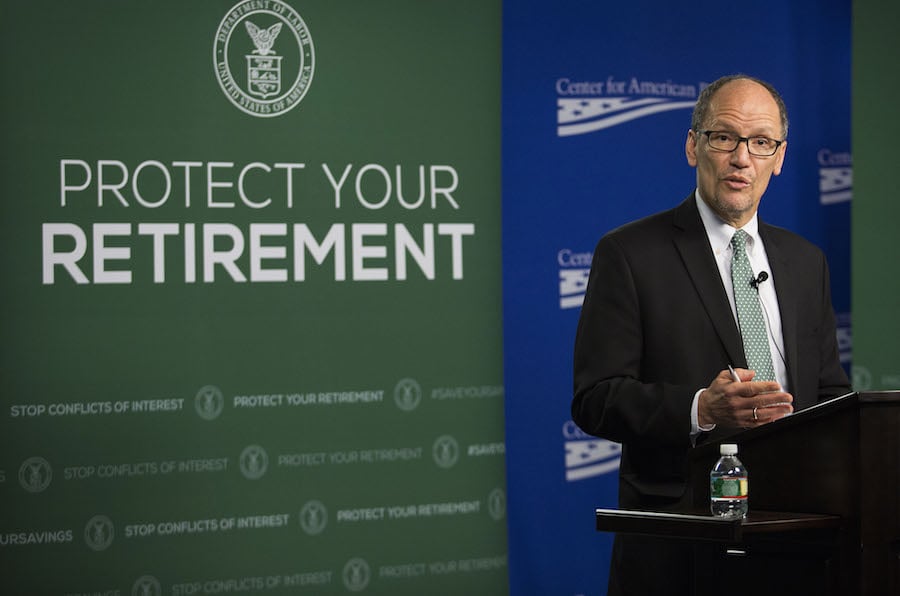A group of opponents to the Labor Department's fiduciary rule has filed
a lawsuit in a Texas district court seeking to strike down the regulation and sticking broadly to familiar arguments levied against the rule.
A total of nine organizations filed the suit late Wednesday in the U.S. District Court for the Northern District of Texas. They oppose the DOL measure that requires advisers to act in the best interests of their clients when advising on retirement accounts.
“The rule and [prohibited transaction exemptions] overstep the Department's authority, create unwarranted burdens and liabilities, undermine the interests of retirement savers, and are contrary to law,” plaintiffs argued in the complaint.
The nine plaintiff organizations are: the Chamber of Commerce of the United States of America; Financial Services Institute Inc.; Financial Services Roundtable; Insured Retirement Institute; Securities Industry and Financial Markets Association; Great Irving-Las Colinas Chamber of Commerce; Humble Area Chamber of Commerce DBA Lake Houston Area Chamber of Commerce; Lubbock Chamber of Commerce; and Texas Association of Business.
"This fiduciary rule, the [best interest contract] exemption and the other related [prohibited transaction exemptions] are arbitrary, capricious and violate the [Administrative Procedure Act] and First Amendment. They should be vacated, and the Department should be enjoined from implementing or enforcing them in any manner," according to the complaint.
(Related read: The DOL fiduciary rule from all angles)
Secretary of Labor Thomas Perez and the U.S. Department of Labor are the named defendants in the suit.
Proponents of the rule argue it is necessary to protect retirement savers from high-fee investment products that erode their nest eggs.
The name of the suit is Chamber of Commerce of the United States of America et al v. Thomas E. Perez et al. A spokesman for the DOL was not immediately available to comment.
"The Department of Labor's complex and unworkable rule will only harm the smaller investors it claims to protect," Dale Brown, president and chief executive of the FSI said Thursday. “Contrary to what supporters of the rule will claim, this legal challenge is solely about ensuring the rules governing retirement advice work for all retirement investors. This rule does not pass that test.







